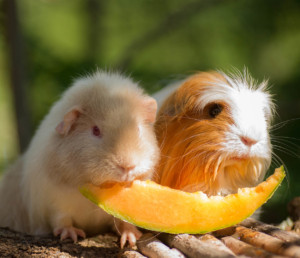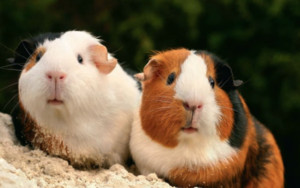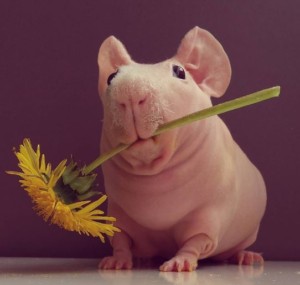Did you know that Tuesday was National Sibling Day?
While we’re a bit late to the party, its never too late to talk about the cutest siblings of the animal kingdom: Guinea Pigs! Cats and dogs often prefer to be solitary pets, but that’s a no-go for these cute little piggies – believe it or not, they are such social creatures that they prefer a sibling! I grew up with Guinea Pigs, as my parents said it was the closest thing to a dog I was going to get for the time being, so these little guys have a special place in my heart. And now, at Alexandria Pet Care, we have quite a few clients with little piglets of their own. So if you’ve ever thought about bringing a cute little bean into your home, or are just curious about them, here are some fun Guinea Pig facts (accompanied by adorable pictures, of course).
The first thing you should know about Guineas is that they actually have quite a long lifespan for small mammals. They can live anywhere from 4 to 8 years, which is a big contributor to the fact that they tend to wind up in shelters when children (or parents) tire of them. Therefore, it’s important for the whole family to have an interest in caring for a piggie, so they are guaranteed a life-long home!
While all Guineas are individuals, just like people, they are a generally curious species, and like to be in an area where they can see the sites! It’s a great idea to keep their enclosure in a moderately active part of the home so they can socialize with people and check things out. However, keep in mind that also like some people, they are quite sensitive to sound, and do prefer a quiet environment.
When making a home for your Guinea, there are a few things to keep in mind. Firstly, while they are little peanuts, they do need space. Just like any other animal, mental and physical enrichment is important for these little guys, so give them as much space and cardboard boxes or tubes as possible, so they can explore. They are also natural grazers (like mini cows), so it is vital that they have a constant supply of dust-free hay, pellets, and fresh water. Of course, a balanced diet is key to a healthy life, so be sure to also supply fresh fruits and veggies to provide a sources of vitamin C, which cannot be naturally produced by Guinea Pig enzymes. Since they free feed, keep an eye out for obesity, which can happen to even the best of pigs! A tricky part to housing a Guinea Pig is keeping their bedding clean. While this may seem like a chore, it is so so important! They can pick up bacteria and become quite sick if left to stand on soiled bedding for too long, so be vigilant about keeping a clean Guinea house!
And finally, today’s main event: Guinea Pig Siblings! Guineas are gentle and social animals who really do need a piggie buddy. The key is to find buddies that are the same gender, so that you don’t wind up with a whole litter of Guinea Pigs by accident! Guineas mature between four weeks (for females) and nine weeks (for males), because they are actually born with the ability to eat solid food right away (crazy, right?!). Therefore, if you do decide to pair a male and female, be sure to have the male neutered to avoid baby pigs. Male or female, your piggie will be ecstatic to have siblings to run around with, and will live a happier, healthier life in the long run.
I hope this was a cute addition to your Weekend! If you are now inspired to adopt two or three pigs, check out your local shelter (see links below)!
Animal Welfare League of Alexandria: https://alexandriaanimals.org/animals-for-adoption/
Animal Welfare League of Arlington: https://www.awla.org/
Humane Rescue Alliance (DC): http://www.humanerescuealliance.org/adopt








